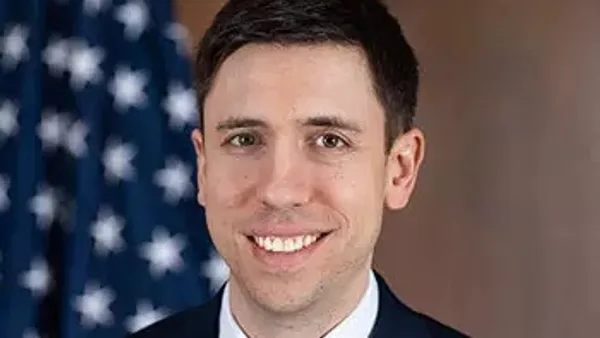Dive Brief:
- Some of the largest financial institutions in the country have altered their return-to-office-plans over the past week, as the number of coronavirus cases grows with alarming speed.
- Wells Fargo, Truist and U.S. Bank pushed back the date employees must return to the office, but some major banks remain committed to a rapid return.
- JPMorgan Chase and Goldman Sachs are sticking to their plans, according to Bloomberg. At the Wall Street Journal CEO Council in May, JPMorgan CEO Jamie Dimon said, "we want people back to work, and my view is that sometime in September, October it will look just like it did before."
Dive Insight:
Coronavirus infections are spiraling, so banks are keeping their doors shut to office workers for longer than expected. At the same time, business is booming for Wall Street banks. Corporate dealmaking is on fire, and many bankers are working exceptionally long hours. Amid the chaos, over the past week several banks have altered their game plans for returning to the office.
New York City Mayor Bill DeBlasio strongly encouraged citizens to wear a mask indoors on Monday. And beginning Aug. 16, New York City will require proof of vaccination for indoor activities like dining and going to the gym. The spike in cases is forcing banks to be more patient than many executives had previously hoped.
Wells Fargo initially planned to shepherd employees back into the office Sept. 6, but the date was changed to Oct. 4 due to the delta variant. Wells Fargo, which has more workers than any other American bank, is offering eight hours of paid time off for its employees to get vaccinated. The bank also required employees to fill out a survey about their vaccination history in July.
Likewise, the world’s biggest asset manager, BlackRock, has delayed their return to office from September to early October.
U.S. Bank disclosed Wednesday that its return to office is postponed indefinitely. Originally planned for Sept. 7, bank employees were told to expect 30 days' notice at some unknown time.
"There are increased caseloads across the globe, and the Delta variant has caused us to adjust our plans," U.S. Bank CEO Andy Cecere told employees in an email.
The rise in coronavirus cases is an obstacle for banks based all over the country. Charlotte, North Carolina-based Truist began hybrid work arrangements for a limited number of employees in June. The bank announced Tuesday that it is pushing back plans to initiate the next reopening phase from Oct. 1 to later that month or in November.
But many other banks refuse to delay the return to in-person work.
JPMorgan appears steadfast in its plan for employees to return to their offices by Sept. 21. Dimon is outspokenly cynical about working from home.
Dimon said remote work could hurt company culture and even prevent some employees from advancement — as younger bankers might lose out on mentorship and training opportunities in an online environment. At a news conference in May, Dimon said remote work "doesn’t work for those who want to hustle. It doesn’t work for spontaneous idea generation. It doesn’t work for culture."
Goldman Sachs faces many of the same challenges. The investment bank has required about half of its workforce to return to the office since June. According to Forbes, Goldman Sachs CEO David Solomon described remote work as an "aberration," and said "for a business like ours, which is an innovative, collaborative apprenticeship culture, this is not ideal ... and it’s not a new normal."















